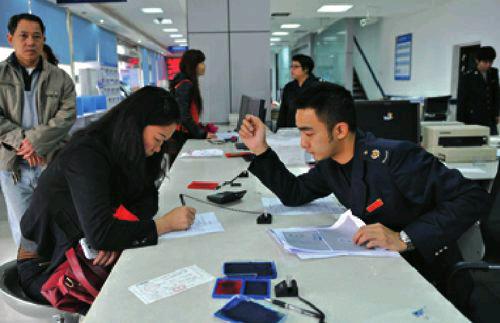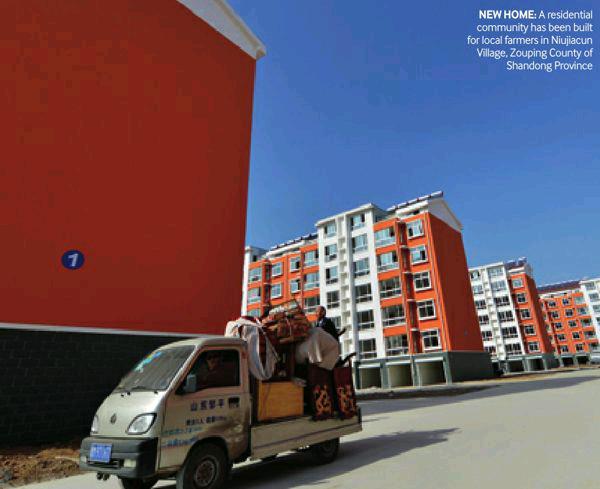Change Across the Board
2014-12-19ByZhouXiaoyan
By+Zhou+Xiaoyan
In November 2013, the Third Plenary Session of the 18th Central Committee of the Communist Party of China (CPC), held in Beijing, produced an ambitious reform plan, explicitly listing 60 tasks in 15 key areas.
Over the past 12 months, great achievements have been made in that regard, with a wide range of reform measures being implemented nationwide. Experts, however, warn that only the easy part has passed and an arduous road still lies ahead.
This round of comprehensive reform reaches beyond economic changes and will cover the market economy, rule of law, cultural development, social harmony and ecological progress.
The detailed plan includes giving a greater role to market forces, transforming government functions, granting greater autonomy to state-owned enterprises, further opening up of the market and allowing farmers to enjoy more property rights over collectively-owned rural land. The plan also aims to lift restrictions on sales of rural construction land and establish a universal social safety net.
Lian Weiliang, vice Minister of the National Development and Reform Commission, said that reforms on a wide range of areas, including economy, politics, culture, society, ecology and Party building, have been bolstered over the past year.
“In China, the blueprint for comprehensively bolstering reforms has been drawn. Its all about how to implement those reform measures. Third-party organizations should be employed for evaluation and supervision,” Lian suggested.
“Some of the planned reforms are being carried out, while some are still in the pipeline,”Ding yuanzhu, a researcher with the Chinese Academy of Governance in Beijing, commented. “Thats because of the nature of reforms in different areas. Some areas are tougher to reform, and the government is still studying how to do it.”
A change of roles
Experts say that the most impressive reform over the past year is the reform on the government itself. The Chinese Government has greatly cut red tape and refrained from too much intervention with the market, aiming to give the market a decisive role in allocating resources, as promised in last years Third Plenary Session of the 18th CPC Central Committee.
Handling the relationship between the government and the market in a market economy is a core issue in Chinas comprehensive reform. The decision of the Third Plenary Session of the 18th CPC Central Committee to let the market play a much greater role is a historic breakthrough. For a long time, China has adopted a policy-led market system. The top leadership has decided that now is the time to profoundly change the old pattern.
The current Chinese Government, which took office in March 2013, has attached great importance to the transformation of its functions, focusing on shifting from an authoritative presence to a more supervisory presence.
To date, 632 administrative approval procedures have been canceled or delegated to lower-level governments. The State Council, Chinas cabinet, plans to cancel or decentralize an additional more than 200 administrative approval procedures before the end of this year to unleash more market dynamics.
Businesses benefit the most from the move. According to a survey conducted by the National Bureau of Statistics, 43.1 percent of the 4,400 surveyed businesses said that they had been positively affected by the move, and 81.6 percent were satisfied with it.
Bo Guili, a professor at the Chinese Academy of Governance, said that cutting red tape is of vital importance to give full play to the markets decisive role in allocating resources.
“If businesses are not given the decisionmaking autonomy, the role of the market can never be exerted. For instance, if a company cant decide what to produce and has to report to regulatory authorities every time it tries to open a new production line, then resources cant be efficiently allocated,” Bo said.
According to Bo, in order to let the market play a vital role and unleash market vitality to the largest extent, the government should allow the market, social groups and local governments to handle whatever should be within their respective responsibilities.
The professor, however, said that cutting red tape is not the end of the story. “The government should intensify present- and post-establishment supervision accordingly,”he said.
Fan Jianping, chief economist with the State Information Center, agreed with Bo, saying that cutting red tape is the biggest achievement among the past years reform measures.
“This is a good start for confining government power. The viability of businesses will be tremendously increased. As long as every business is dynamic, the government wont be so concerned about the GDP growth rate as it is now,” Fan noted.
Lowered threshold
In addition to the reduction of red tape, the improvement of Chinas business environment is also attributable to an array of reform measures aimed at removing restrictions for private capital.
On March 1, central authorities lifted business registration restrictions on minimum registered capital, payment deadlines, down payment ratio and cash ratio of registered capital, a move aimed at facilitating entrepreneurship.
By virtue of the new policy, the number of newly registered companies increased 56.48 percent year on year from March to September. On average, 10,500 companies were set up every day, according to data from the State Administration for Industry and Commerce.
Reform on Chinas state-owned enterprises(SOEs) has been accelerated to give more investment opportunities to private capital.
In July, six large SOEs were chosen to pilot reforms in ownership, management and supervision. State-owned behemoths, such as China National Petroleum Corp. and China Telecom, have carried out their own plans to diversify corporate ownership and attract private funds.
On September 12, China Petroleum and Chemical Corp. (Sinopec), the countrys largest petroleum refiner and oil product manufacturer, announced that its wholly owned subsidiary Sinopec Marketing Co. had entered into a capital injection agreement with 25 domestic and foreign investors.
Song Xiaowu, a senior advisor to the China Society of Economic Reform (CSER), believes reforms on SOEs are quite necessary.
“SOEs have made tremendous achievements during the past three decades, but thats because of their intertwined relationship with the government and the resulting privileges or even monopolistic status in the market,” Song said. “The government should be separated from the operation of businesses, and mixed ownership of SOEs can help realize that goal.”
Mixed ownership can also help vitalize state capital, unleash the potential of private capital and accelerate the overseas expansion of Chinas SOEs, Song added.
Song, however, warned that mixed ownership cant solve the problem alone.“There should be a wide variety of supporting measures for the scheme. First, a sound market order should be established where the buying and selling of shares in SOEs should be fair and transparent. Also, the corporate governance structure in SOEs should be improved and SOEs should hand in more profits to the country,”Song said.
According to Song, 50 to 60 percent of SOEs profits are handed in to the government in Western countries, but in China the proportion is still very low.
Challenges remain
Peng Sen, President of the CSER, said that the reform process ahead is full of trials and tests.
“The Central Government is undoubtedly determined and steadfast about reforms. Although it has mapped out a detailed and thorough plan for future reforms, some local governments are hesitant on the implementation of those plans, for fear of causing chaos or in order to defend interest groups,” Peng said.
According to Peng, though the government has made great achievements in cancelling administrative approval procedures, its still not enough.
“The government still intervenes too much with the market. In contrast, public services, social management and market regulation are all severely lacking, whereas those areas should have been the focus of government efforts,” he said.
Peng stressed that its very difficult to expect self-inflicted reforms from the government. “Now, the government can choose to cancel whatever approval procedures that it wants to cancel. Thats bound to be a slow and painful process,” he noted.
In the future, an overall review of the legitimacy of all government approval procedures should be carried out to decide what should be retained and what should be canceled, according to relevant laws and the demand from the market, Peng suggested.
yan Jirong, a professor at the School of Governance with Peking University, held that Chinas reforms have reached a critical moment. “From now on, any reform will upset a certain interest group. Whatever could be easily reformed has been reformed; the problems left over are the hardest ones to solve,” yan said.
Wang Zhan, President of the Shanghai Academy of Social Sciences, said that the latest round of comprehensive reform is totally different from the reforms in 1978 when China first opened up to the outside world.
“Today, any reform measure would incur mixed feedback because of different appeals from different interest groups. Thats why the Chinese Government started with some easy issues that are also widely welcomed, such as giving farmers more rights over rural land and using the value-added tax to replace the business tax. Many people will benefit from these reform measures. Therefore, they are easier to carry out,” Wang said.
However, Wang stressed that some reforms have the power to affect or even determine other reforms, such as the fiscal reform, the market-oriented interest rate reform, the creation of a unified transfer market for rural and urban lands, the streamlining of government approval procedures and the establishment of a nationwide credit system. According to him, these are fundamental reforms that others are based on and should be carried out as soon as possible.
“For some controversial reform initiatives, the Central Government can authorize local governments to carry them out on a trial basis,”Wang said.
